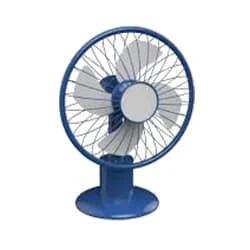Speed Fan Wiring Diagram:
This diagram shows how to connect Wall Mounted Speed Fan Wiring Diagram. In this circuit diagram, we just try to describe simply how to connect a Wall Mounted Speed Fan Wiring Diagram to house loads like a fan. This diagram is for single-phase house wiring. So you can wire your house or office like this diagram very easily. If you want to learn how to connect this circuit clearly you can follow our youtube video link in below.
Diagram of Speed Fan Wiring Diagram:
Components Need for this Project:
You can get the components from any of the sites below:
Read Also:
Components used to make the Speed Fan Wiring Diagram:
01. Fan
 |
| Fig 2: Fan |
02. Fan Controller
 |
| Fig 3: Fan Controller |
Thank You for visiting the website. Keep visiting for more Updates
Frequently Asked Questions
There are many ways to control the power supply speed of a fan. Controlling the speed of the fan can be as simple as regulating the Circuit diagram input voltage to the fan to using more complicated and digital microprocessor Project system inputs.
Speeds vary significantly, as but most high-speed ceiling fans spin Circuit diagrams anywhere from 200 RPM (revolutions per minute) to around 380 RPM. In general, smaller fans spin currently faster, and larger fans rotate slightly slower as the Circuit diagram increases in size.
In some instances, lower fan speeds will improve both temperature and humidity power supply control, limit air pressure in the HVAC air ducts, and dramatically reduce overall project system wear. However, it's important to note that fan Currenttlou speed adjustments should always be performed by licensed Circuit diagram professionals.
Many consumers believe that faster and more forceful airflow will make their homes feel much cooler. In reality, this is rarely the case. In fact, in most instances, speeding the AC fan up can actually make your living environment feel both hotter and more humid.
For your AC Project system to cool efficiently, the fan needs to be able to move a certain amount of air every Circuit diagram minute. For every AC ton, you need between 350 to 400 cubic feet of air per Power supply minute (CFM), i.e. a 2.5-ton AC needs 875 to 1,000 CFM, a 5-ton AC needs 1,750 to 2,000 CFM, etc Circuit diagram.


Post a Comment
Do leave your comments